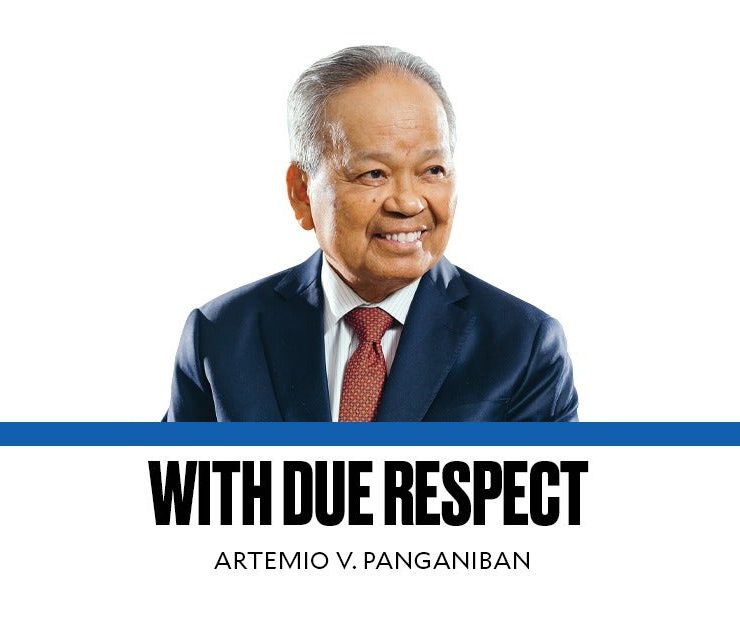Scotus legalizes bribery

The dizzying political turmoil in the United States has come to a peaceful halt. It started a month ago when incumbent United States President Joe Biden stumbled in refuting the many lies of his opponent Donald Trump.
In a follow-up press conference on July 12, Biden miserably confused Russian Vladimir Putin to be the president of Ukraine, and Donald Trump to be the US veep. Then came several days of silent pressure on Biden to drop his quest. Finally, after contracting COVID, he announced on July 21 his withdrawal and endorsed Vice President Kamala Harris to take his place.
Harris worked feverishly last week to acquire the support of the Democratic Party leaders, getting a record $150 million in campaign contributions in 24 hours. Now, the turmoil has settled, and the battle will be Harris vs Trump, that is, between a relatively young incumbent lady vice president, former US senator, and federal prosecutor with Asian descent versus a former president, Caucasian blabbermouth, and the oldest felon to seek the presidency of the most powerful country in the planet.
HOWEVER, AS A LAWYER AND A RETIRED JURIST, I am more befuddled by a recent decision (Snyder v. United States, June 26, 2024) of the Supreme Court of the United States (Scotus) that practically legalized bribery.
First, the facts and the law. James Snyder was the mayor of Portage, Indiana, USA, when, in 2013, the city purchased five trash trucks from the Great Lakes Peterbilt Co. for about $1.1 million. A year after, “in 2014, Peterbilt cut a check for $13,000 to Snyder.”
After being charged and tried, a federal jury convicted him of “accepting an illegal gratuity in violation of Section 666 of the US Code.” The jury thrashed his defense that “the payment was for his consulting services as a contractor for Peterbilt.” The district court sentenced him to one year and nine months of imprisonment. The US Court of Appeals affirmed his conviction.
Section 666(a)(1)(B) of the US Code penalizes any “agent of an organization, or of a State, local, or Indian tribal government or any agency thereof” who “corruptly solicits or demands for the benefit of any person, or accepts, or agrees to accept, anything of value from any person, intending to be influenced or rewarded in connection with any business, transaction, or series of transactions of such organization, government, or agency involving any thing of value of $5,000 or more.”
In short, the said section penalizes those who corruptly solicit, accept, or agree to accept certain payments in connection with transactions worth $5,000 or more.
IN ACQUITTING THE ACCUSED, the Scotus—voting 6-3, with the six conservatives appointed by Republican presidents (three of them by Trump) against the three liberals appointed by Democratic presidents—distinguished between two kinds of payments to public officials: bribes and gratuities. Bribes are given BEFORE an official act is to be done in order to influence the public official to agree to the giver’s wishes.
On the other hand, gratuities are payments made to a public official AFTER an official act is performed as a “reward or token of appreciation.” Bribes, the Scotus said, are “inherently corrupt and unlawful” while “the treatment of gratuities is more nuanced. Some gratuities might be innocuous, and others may raise ethical and appearance concerns. Federal, state, and local governments have drawn different lines on which gratuities and gifts are acceptable and which are not.”
The 16-page decision written by Justice Brett M. Kavanaugh held that Section 666 is a bribery statute that requires a “corrupt state of mind.” Since the state of mind of Snyder was not proven, he could not be convicted of “gratuity.” It left the issue as a state, not federal, matter.
With a veiled swipe at the majority, the 22-page dissent of neophyte Justice Ketanji Brown Jackson sneered, “Snyder’s absurd and atextual reading of the statute is one [that] only today’s Court could love.”
LIKE JUSTICE JACKSON, MY SIMPLE MIND CANNOT GRASP AND ACCEPT the Scotus distinction between money or gift given BEFORE and AFTER an official act is performed. In both, the purpose of the gift is the same—to influence the public official into performing an official act according to the giver’s direction.
To me, it does not matter whether the “reward” or “token of appreciation” was given before or after the act; or a part was given before and the balance after. The act is a simple, plain, and shameful crime against the people.
I cannot imagine our Supreme Court proudly posing a linguistic distinction that does not make a substantive difference. But perhaps, I should not really be shocked.
In my column on June 17, I was already utterly dismayed at what I humbly believe were the unethical, if not illegal, practices of the current Scotus justices such as their unabashed acceptance of enormous sums as royalties, speaking fees, expensive gifts, paid vacations in exclusive hotels with private yachts and private planes, hobnobbing with the rich and famous in private clubs and, lately, partisan political bias.
Now, I am no longer dismayed. I am flabbergasted! The great chief justice John Marshall must be rolling in his grave.
chiefjusticepanganiban@hotmail.com


















